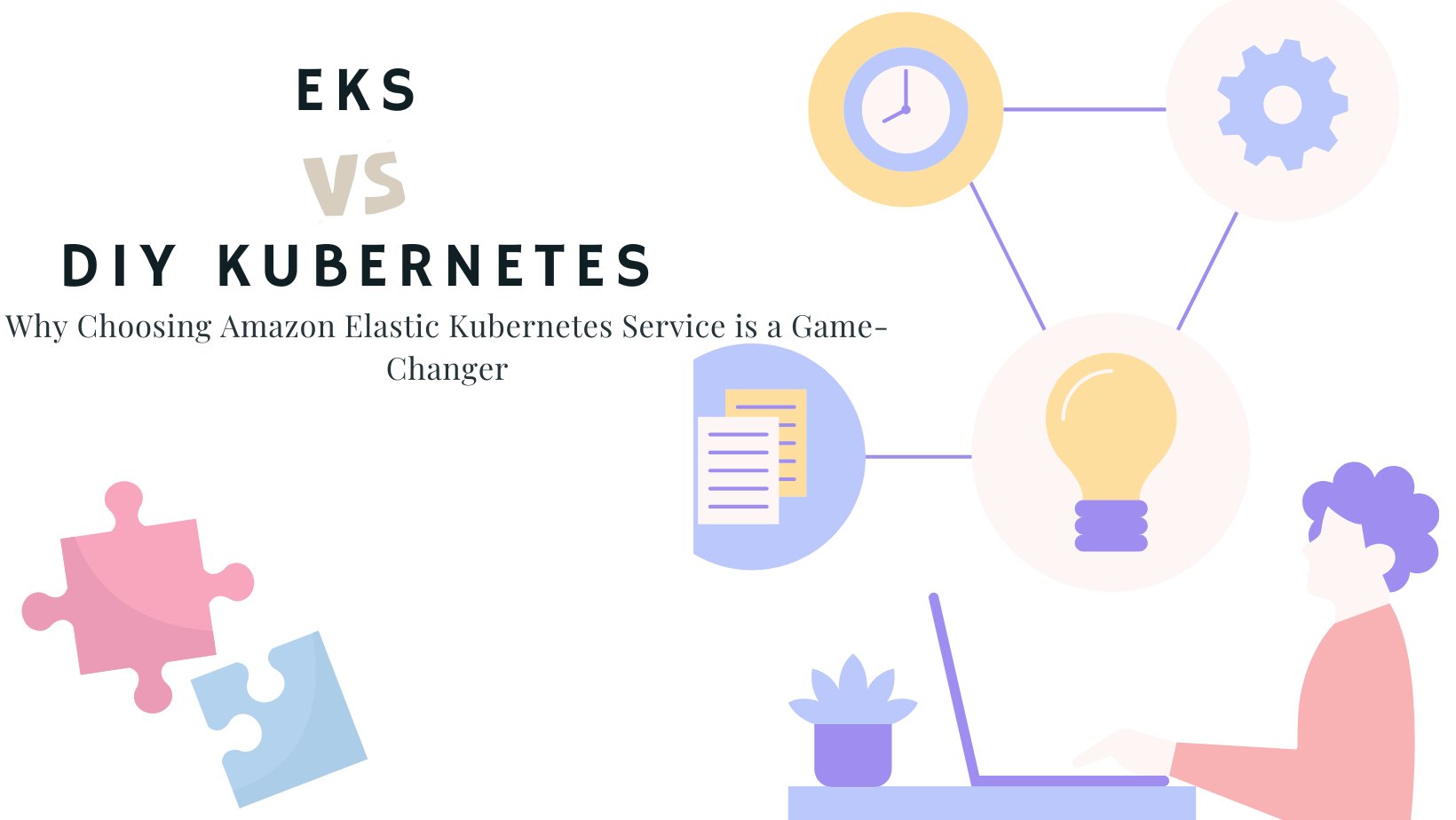EKS vs. DIY Kubernetes: Why Choosing Amazon Elastic Kubernetes Service is a Game-Changer
Learn how Amazon Elastic Kubernetes Service (EKS) revolutionizes app deployment and management. Simplified setup, seamless integration, enhanced security, and cost-effectiveness make EKS a game-changer.

Discover why choosing Amazon EKS is a game-changer for application deployment and management.
In recent years, Kubernetes has emerged as the go-to container orchestration platform for managing and scaling applications. Its ability to automate the deployment, scaling, and management of containerized applications has revolutionized the way organizations build and run their software. As Kubernetes gained popularity, various solutions emerged to simplify its implementation. One of the most notable options is Amazon Elastic Kubernetes Service (EKS), a managed service offered by Amazon Web Services (AWS). In this article, we will explore the advantages of choosing EKS over a DIY Kubernetes setup and why it can be a game-changer for your organization.
Simplified Deployment and Management
Setting up and managing a Kubernetes cluster from scratch can be a complex and time-consuming process. It involves provisioning and managing the underlying infrastructure, configuring networking, installing and configuring the Kubernetes control plane, and maintaining security patches and updates. This requires a significant amount of expertise and resources, which might not be readily available for every organization.
With EKS, AWS takes care of the heavy lifting by providing a fully managed Kubernetes service. They handle the provisioning and management of the control plane, allowing you to focus on deploying and managing your applications. This significantly reduces the time and effort required to get a production-ready Kubernetes cluster up and running.
Scalability and High Availability
Scaling and ensuring the high availability of a Kubernetes cluster is crucial for running reliable and resilient applications. Achieving this on your own requires careful planning and implementation of various components, such as load balancers, auto-scaling groups, and multi-zone deployments.
EKS simplifies this process by integrating with other AWS services, such as Elastic Load Balancer (ELB) and Auto Scaling Groups. This allows you to easily scale your cluster based on workload demands and ensures high availability by automatically distributing your workload across multiple availability zones. By leveraging the scalability and high availability features of EKS, you can ensure that your applications are always up and running, even during peak traffic periods.
Enhanced Security and Compliance
Security is a top concern for any organization deploying applications in a production environment. Kubernetes provides several security features, such as RBAC (Role-Based Access Control) and network policies, to protect your applications and data. However, configuring and managing these security measures can be complex and time-consuming.
EKS integrates with AWS Identity and Access Management (IAM) and other AWS security services, making it easier to manage access control and enforce security policies. Additionally, EKS benefits from the robust security infrastructure provided by AWS, including VPC (Virtual Private Cloud) networking, encryption at rest and in transit, and fine-grained control over network traffic. By choosing EKS, you can leverage these security features and ensure that your applications are protected against potential security threats.
Seamless Integration with Other AWS Services
Another significant advantage of EKS is its seamless integration with the broader AWS ecosystem. AWS offers a wide range of services that can be easily integrated with EKS, such as Amazon RDS (Relational Database Service), Amazon S3 (Simple Storage Service), and AWS Lambda. This integration allows you to build scalable and resilient applications by leveraging the capabilities of these services.
For example, you can use Amazon RDS to manage your databases and offload the operational overhead of managing database servers. By integrating EKS with AWS Lambda, you can build event-driven serverless applications that automatically scale based on incoming events. This tight integration between EKS and other AWS services provides a powerful platform for building and running modern cloud-native applications.
Cost-Effectiveness
Cost is always a consideration when choosing any technology solution. Setting up and managing a DIY Kubernetes cluster can be expensive, requiring dedicated resources and expertise. Additionally, the operational costs of maintaining and scaling the cluster can quickly add up.
EKS offers a cost-effective solution by following a pay-as-you-go model. You only pay for the resources you consume, such as EC2 instances and storage, without the upfront costs of provisioning and managing the infrastructure. Additionally, EKS provides cost optimization features, such as cluster auto-scaling, which automatically adjusts the size of your cluster based on workload demands, helping you optimize your resource utilization and reduce costs.
Conclusion
Choosing between EKS and a DIY Kubernetes setup ultimately depends on your organization's specific requirements and resources. While a DIY approach might provide more flexibility and control, EKS offers a managed, scalable, and secure Kubernetes solution that can dramatically simplify the deployment and management process. With its seamless integration with other AWS services, cost-effectiveness, and enhanced security and compliance features, EKS can be a game-changer for organizations looking to leverage the power of Kubernetes without the complexity of managing it themselves.
To get your hands on more insights, just go to my blog Unlocking the Power of EKS: How Amazon's Kubernetes Service Can Revolutionize Your Infrastructure
Hi! I am Safoor Safdar a Senior SRE. Read More. Don't hesitate to reach out! You can find me on Linkedin, or simply drop me an email at me@safoorsafdar.com
